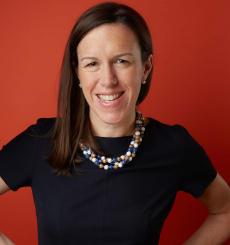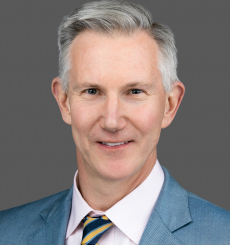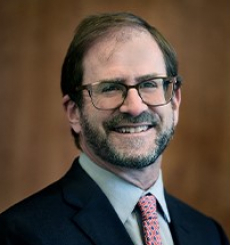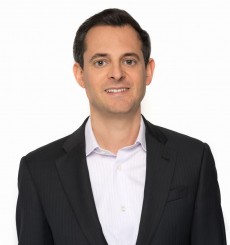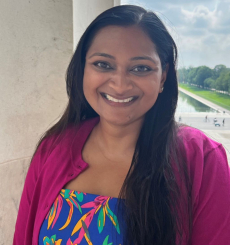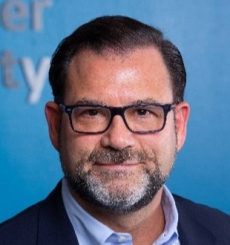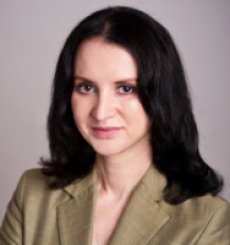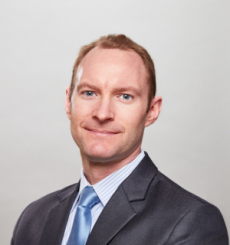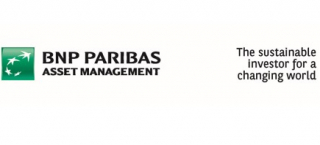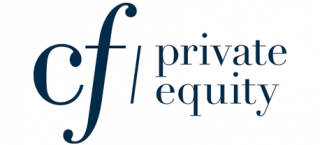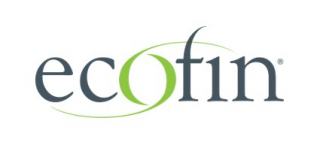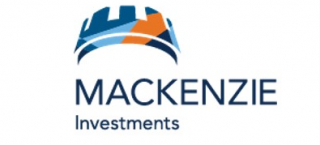Our Responsible Investment series is
comprised of local peer learning-focused events exclusively for the institutional
investor community with a specific focus on allocations to responsible
investments, sustainable finance, and ESG.
Each forum is developed through
extensive interaction with the local institutional investment communities. This
includes senior-level investment decision-makers representing public and
corporate pension plans, endowments, foundations, insurance portfolios,
healthcare plans, investment consultants, OCIO and family offices.
We provide a platform for peer-to-peer knowledge exchange for the institutional community with focus on allocations to responsible investments in a closed-door environment. Our content is constantly updated to reflect the latest in impact-driven, alpha-generating investment strategies across the entire capital markets spectrum, spanning from initial allocations to managing multi-billion-dollar portfolios.

REQUEST AGENDA
Please note only corporate email addresses will be accepted.
Why do I need to enter my corporate email address?
By using your corporate email address, we can verify that you are a registered financial professional.
Key Discussion Topics
Regulation & Responsible Investing - Upcoming Headwinds Defining the Future of ESG
Whilst ESG has previously been independently monitored, the SEC is moving toward a more formalized regulatory framework. However, questions remain on how this will impact investors, and what this means for the future of investment in the US. What is the impact of recent and future regulatory changes in the ESG industry and how does this impact ESG frameworks; what changes are required in their investments to build a net-zero portfolio; and how should asset owners approach the relationship between international standard setters?
Equities’ Role in ESG
Active public equities present the easiest way for asset owners to measure their ESG credentials as Norges Bank recorded a 34.3% return for its green equity investments in 2020. This session will explore how asset owners can promote cultures of diversity and inclusion among their public holdings and how they should approach and update exclusion lists. They will also discuss how robust data functions can be built to enable them to stay abreast of these ESG developments.
Leading on Diversity, Equity &Inclusion in North America
Despite enthusiasm to place social issues at the heart of investment decisions, many investors remain unsure about how to understand and quantify their ability to enact positive social change and deliver lasting returns. The panel will discuss how to understand exactly why DE&I is so important, and how it can generate social impact and deliver lasting investment performance. We will learn how new D&I demands increase the diversity of thought amongst investors and remove biases, and discover new strategies on how to implementDE&I effectively and reduce social barriers to investment.
Leveraging Timber, Agriculture, Infrastructure, and Real Estate in a Responsible Portfolio
Alternatives portfolios present a major challenge and opportunity for asset owners taking a whole-portfolio approach to responsible investing. Yet real assets present a silver lining, especially in long-term green infrastructure and real estate as well as timber and farmland. The panel will discuss how asset owners should recalibrate their portfolios to include more weight in green real estate and how they can tap into global green infrastructure megaprojects.
Asset Owner Case Studies: Private Markets
As CalPERS move forward with the Data Convergence Project, the requirement for robust ESG metrics from private markets is set to increase dramatically. In this case study, three leading Chief Investment Officers of major allocators take the audience through their organization’s responsible investing private markets framework sets out objectives, and showcases how they will be achieved. The session will explore how asset owners can ensure GP due diligence,post-investment management, and exit and sale processes are in line with responsible investing objectives, and how they can influence GPs on their investment strategies.
The Future is Bright - Energy Transition and Outperformance
The war in Ukraine has catalyzed the trend of de-risking from fossil fuels and developing renewable and clean energy alternatives, presenting asset owners with an ability to fulfill long-term fiduciary duty and capitalize on a major megatrend. The panel will assess how allocators can source opportunity from the carbon credit market and determine where risk-adjusted returns can be found in renewable and clean energy to identify how patient allocators can capitalize on liquidity premiums.
Thematic Investing and Building a Framework on Values
In lieu of global standardization, asset owners should choose values that represent them and their stakeholders to pursue their ESG or responsible investing strategy. The UN's SDGs are influencing and shaping how companies are looking for opportunities—investors are seeking to become more responsible in their investments rather than merely adhering to policy. This session will gather major allocators to assess how allocators view the UN’s SDGs, how the goals compare to what investors are presently doing. and which are being prioritized in responsible investing portfolios.
The Great Debate: Divestment v. Engagement
Evidence suggests that divesting from polluting industries merely passes assets around, benefiting only those holding ‘vice’ equities. At the same time, given most asset owners have passive minority ownership through major manager funds, their influence in engagement may be minimal. In this session, major asset owners will put forward the case for both divestment and engagement and determine how and when activist stewardship is necessary to push ESG agendas. They will ascertain whether divestment allows for ESG objectives to be more easily met and evaluate how to effectively engage in proxy voting to push ESG objectives.
In this Oxford-style debate, two teams of a leading GP and LP each go head-to-head on the fundamental nature of ESG and its future.
